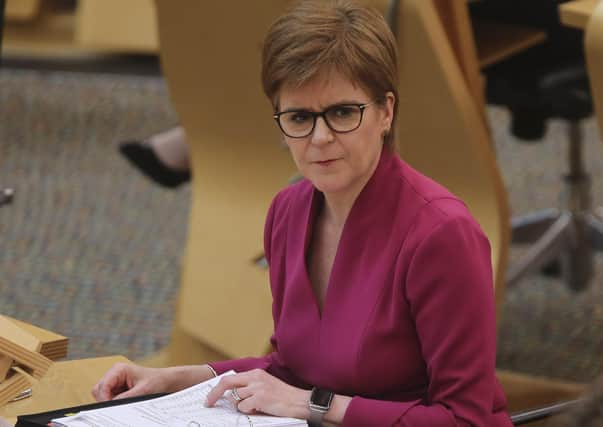Borders MSP’s hopes of regional R number breakdown to boost tourist industry dashed


The Midlothian South, Tweeddale and Lauderdale MSP last week asked Scottish first minister Nicola Sturgeon if weekly local breakdowns of the reproduction rate of the disease, known as the R number for short, could be published to potentially allow for a phased revival of the leisure and hospitality industry, but she was told that won’t be happening.
Ms Grahame told the Scottish Parliament: “It is important that we look at local figures for the R number, because, in that way, we might be able to allow businesses, particularly those in the hard-pressed leisure and tourism sectors, to reopen in certain areas, and we might be able to monitor any change in the R number as a consequence of reopening if that can take place.
Advertisement
Hide AdAdvertisement
Hide Ad“In my constituency and elsewhere, hotels and businesses that provide leisure activities will collapse into liquidation if something does not happen soon.”
Knocking back that suggestion, Ms Sturgeon, MSP for Glasgow Southside, told her: “I agree with Christine Grahame on the objective that she is encouraging. The issue is simply about how we do that.
“Even when we publish the R number for Scotland, there is a range, so there is already a degree of uncertainty. The smaller the area for which we try to calculate an R number, the greater the range of uncertainty is.
“It is thought that an R number at local authority level would not tell us very much, in a meaningful way, about the differences between areas.
Advertisement
Hide AdAdvertisement
Hide Ad“That does not mean that we do not want to monitor the spread or behaviour of the virus in different areas. We do. The question is about how we do that.
“We are looking at other data sources that will give us that information at regional and local authority levels on an ongoing basis.
“Christine Grahame is right that we need to understand what is happening on that basis, but I am trying to explain that we need to do that in different ways from simply publishing regional R numbers.”
Concerned by news of the closure of Melrose’s Waverley Castle Hotel and forthcoming redundancies at the Peebles Hydro and nearby Park Hotel and Macdonald Cardrona Hotel, Ms Grahame is also backing calls to the UK Government by Holyrood rural economy and tourism secretary Fergus Ewing for extra financial support for the hard-pressed hospitality industry.
Advertisement
Hide AdAdvertisement
Hide AdShe said: “Covid-19 has had a devastating impact on the hospitality and tourism sector in Scotland.
“The UK Government has announced furlough payments will taper off from August, ending in October, but as it stands, hospitality and tourism businesses simply do not have the income to pick up the slack on this.
“The peak summer season has been largely lost, and it’s highly unlikely business is going to pick back up to compensate for this before support is withdrawn by the UK Government in the autumn.
“I do welcome the UK Government’s support thus far, but the job retention scheme and the self-employed income support scheme, whilst valuable as short-term solutions, are insufficient to support the hospitality and tourism sector into recovery in the long term.
Advertisement
Hide AdAdvertisement
Hide Ad“I’ve queried the possibility of regional relaxation of restrictions on these businesses where the R number is lower and this can be shown to be safe for local populations.
“In addition, the UK Government must follow the lead of other countries on this and extend support for businesses in this sector to give them a fighting chance of survival if we’re to avoid mass redundancies and the collapse of the sector.”
“Tourism and hospitality businesses form a key part of our local economies, particularly in rural areas, and inaction on this would devastate them.”